Brexit: DUP to wait for UK Brexit plan before Stormont move
- Published
- comments
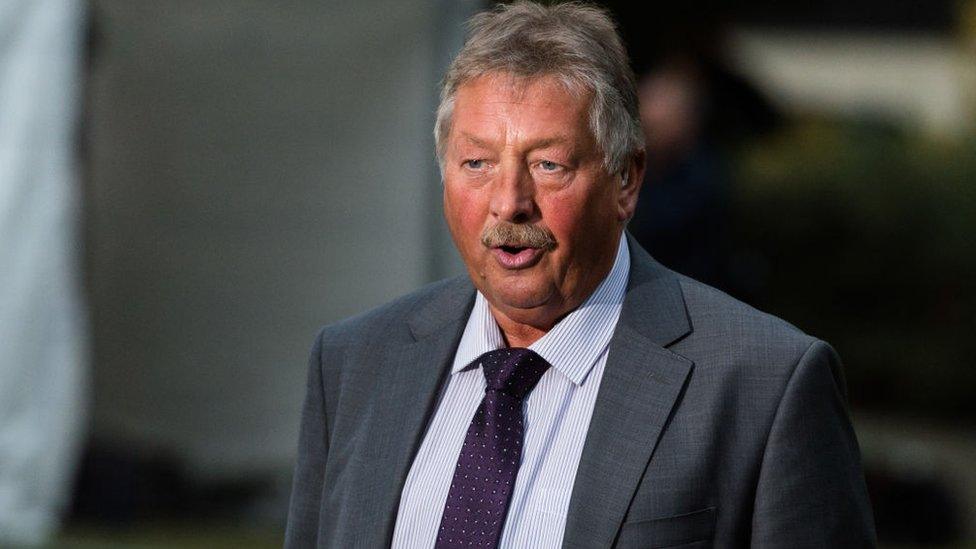
Sammy Wilson said the DUP would not be in the executive to implement the Northern Ireland Protocol
The Democratic Unionist Party (DUP) will wait to hear the government's proposals on post-Brexit trading arrangements before it decides to re-enter the Northern Ireland Executive, the party's MP Sammy Wilson has said.
Mr Wilson added he hoped difficulties could be resolved by the end of 2022.
He argued the Northern Ireland Protocol had undermined NI's place in the UK.
On Thursday, Foreign Secretary Liz Truss said the UK would act if the EU did not show flexibility.
It comes after the UK attorney general said it would be lawful for the government to override parts of the agreement.
This was a change to previous advice because, the office said, the protocol had caused social unrest.
This part of the UK-EU Brexit agreement keeps Northern Ireland aligned with the EU single market for goods.
It was a move designed to allow the continuation of free trade across the Irish border, however, it has resulted in some additional checks being placed on goods moving from Great Britain to Northern Ireland.
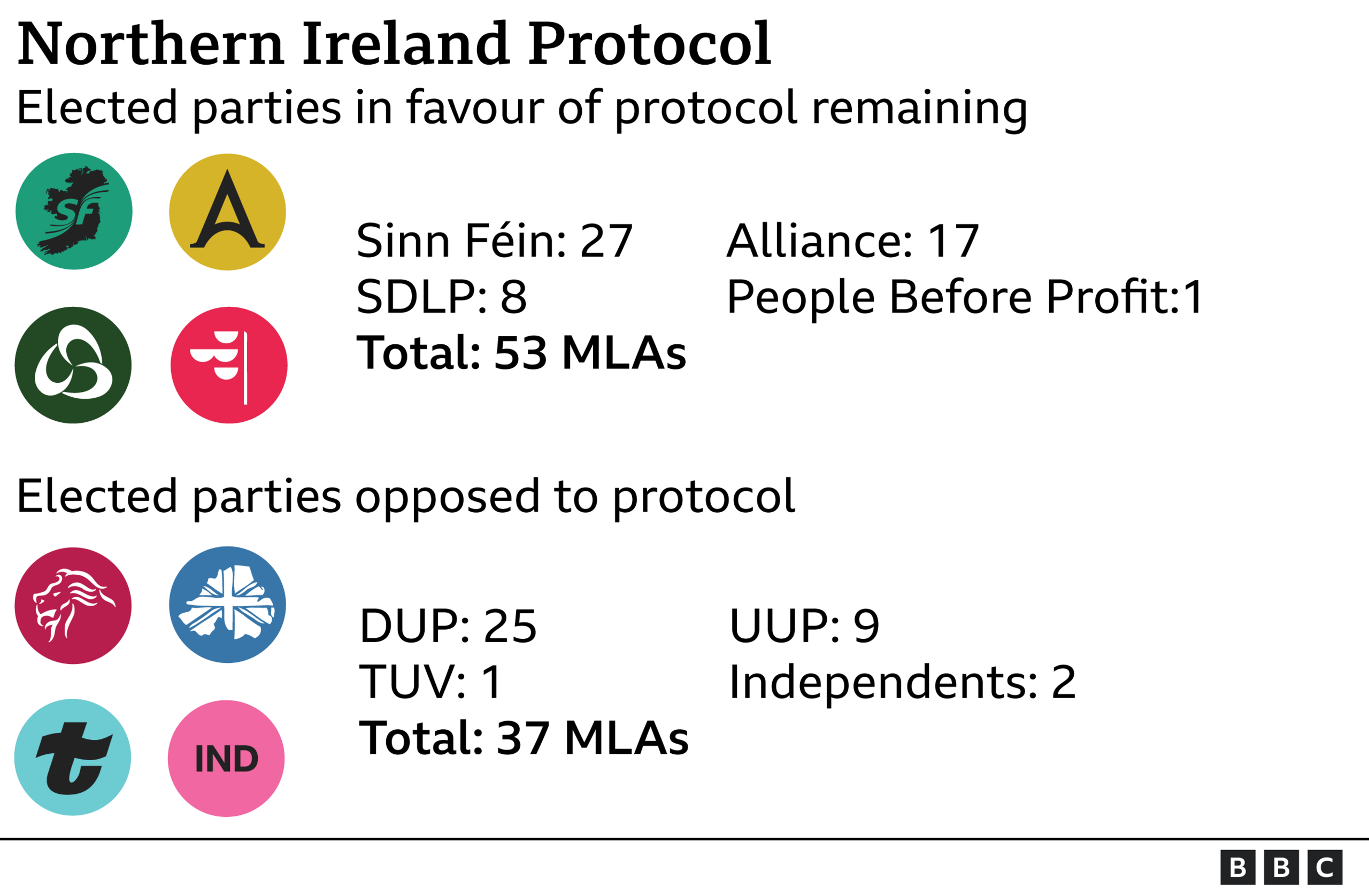
Most politicians elected to the Northern Ireland Assembly want the protocol to remain
The new legal advice comes after a hoax bomb attack which targeted Ireland's foreign affairs minister in Belfast two months ago.
Mr Wilson told BBC News NI's Good Morning Ulster programme that the protocol had been implemented "in the most petty and draconian way by the EU" as a means to teach the UK a lesson.
"Being inside the executive would require us to implement the agreement and the Northern Ireland Protocol, something which we believe damages our constitutional position, removes the democratic decisions from Stormont and is damaging our economy," he said on Thursday.
'Petty stunt'
In February, the DUP, which campaigned for Brexit, withdrew Paul Givan as first minister in protest against the protocol, resulting in the collapse of Stormont's governing executive.
Since last week's assembly election, in which Sinn Féin became the largest party, the DUP has said it will not nominate ministers to re-establish the executive.
It has also hinted that it may block the nomination of an assembly Speaker, a move which would prevent the functioning of the assembly.
The DUP's backing is vital - it is the largest unionist party and a speaker can only be elected with cross-community support.
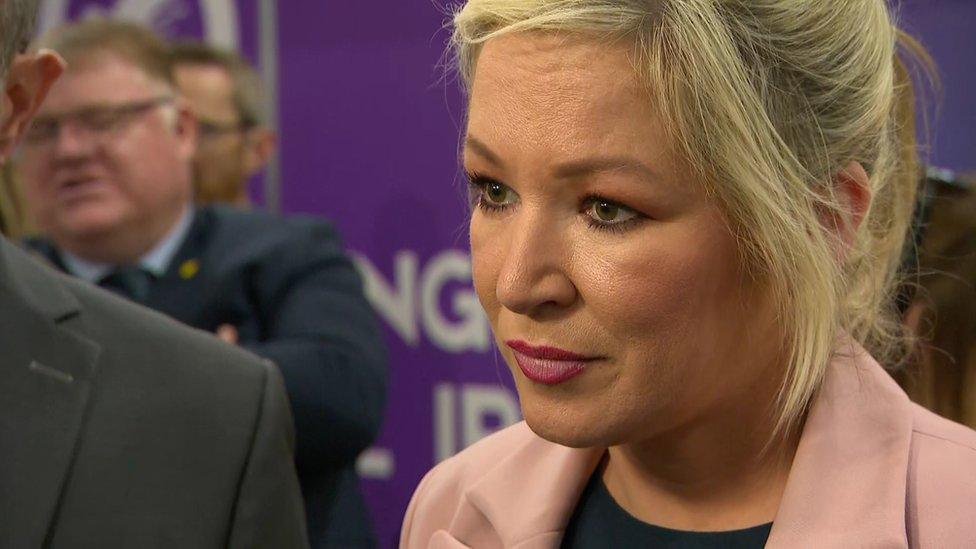
Sinn Féin vice-president Michelle O'Neill is in line to be Northern Ireland's first minister after last week's election
Sinn Féin deputy Michelle O'Neill said it would be incredulous for the DUP to block the election of a Speaker.
"I don't think that's acceptable when they've just been before the electorate and the people have voted to have politics working for them," she continued.
Neale Richmond, a member of the Dáil (lower house of Irish parliament) and the Fine Gael party's European affairs spokesperson, said reports the UK could override the protocol agreement would be a "petty stunt that won't achieve anything".
"The people who pushed Brexit the hardest have said no to every solution to a mess they've created themselves," he told Good Morning Ulster.
"Instead what we have is the DUP and the British government absolutely ratcheting up tensions when the EU throughout this process have looked through the implementation process to produce actual real solutions."
'Maximise the advantage'
Mr Wilson said his party was committed to devolution and wanted the institutions up and running as soon as possible.
"We want to make sure that devolution is done on the basis of parties and their views being treated with respect and that the consent principle is in place," he said.
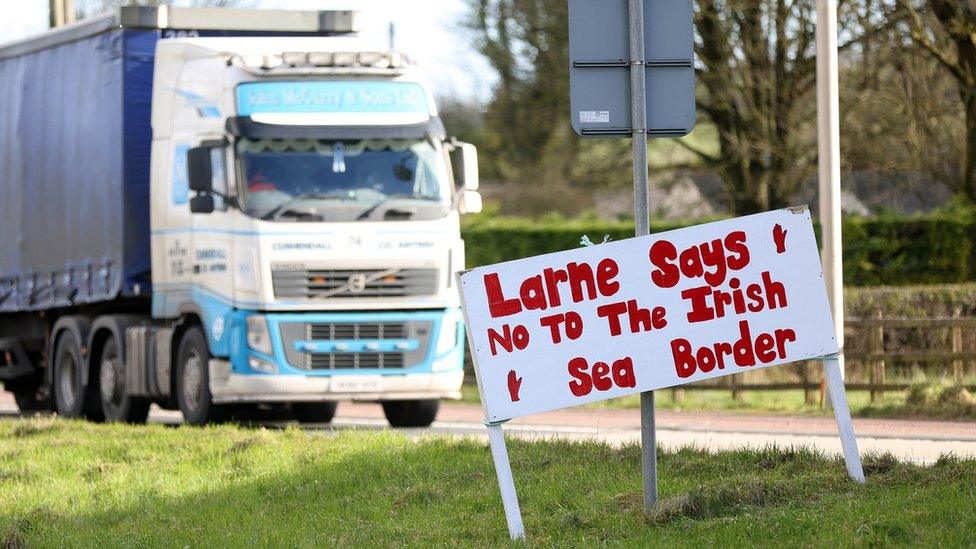
Anti-protocol graffiti has been displayed in a number of unionist areas since the Brexit deal was signed
Mr Wilson accused Mr Richmond of using "honeyed" words in his description of the protocol.
Earlier this week, the UK rejected EU plans aimed at reducing paperwork and checks on goods.
It said they had the potential to "worsen the current trading arrangements".
Northern Ireland Office Minister Conor Burns said the government had asked EU to widen the mandate for its chief negotiator Maroš Šefčovič so the parties could "land a negotiated position".
"If it comes to the point where that is going to be impossible then clearly we will have to take decisions and actions to protect the peace, the power sharing, the institutions born out of the Good Friday Agreement, but we're not at that point yet," he added.
Stephen Kelly from Manufacturing NI said the consensus among business owners in Northern Ireland was that the protocol was working for them.
"There are issues in terms of complexity, that comes with a bit of cost, but actually in the round, the protocol works very well for them," he told BBC Radio Foyle's Breakfast programme.
"They want to see amendments and adjustments, but in a pragmatic way.
"On the face of it this is about trade, but it's not, it's all about politics, stuff that's not relevant to business."
- Published12 May 2022
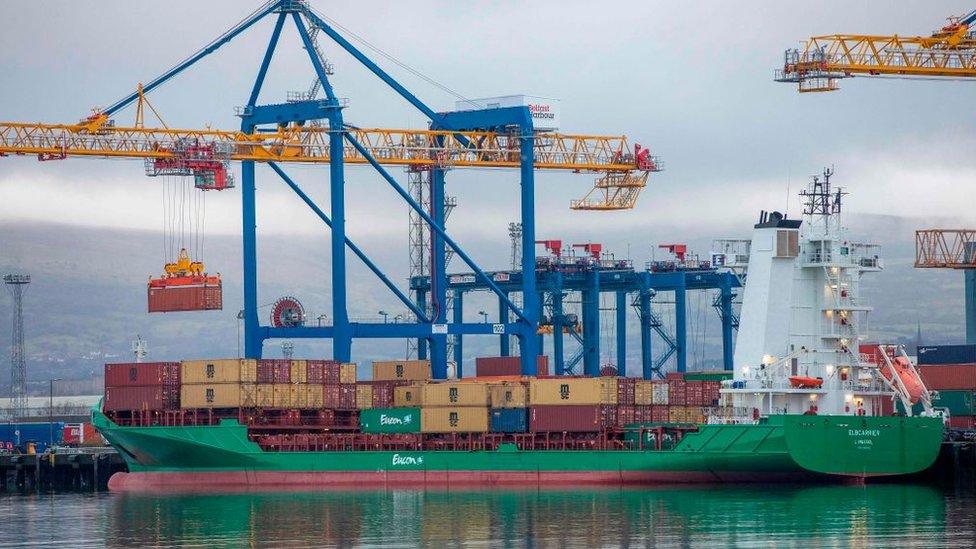
- Published11 May 2022
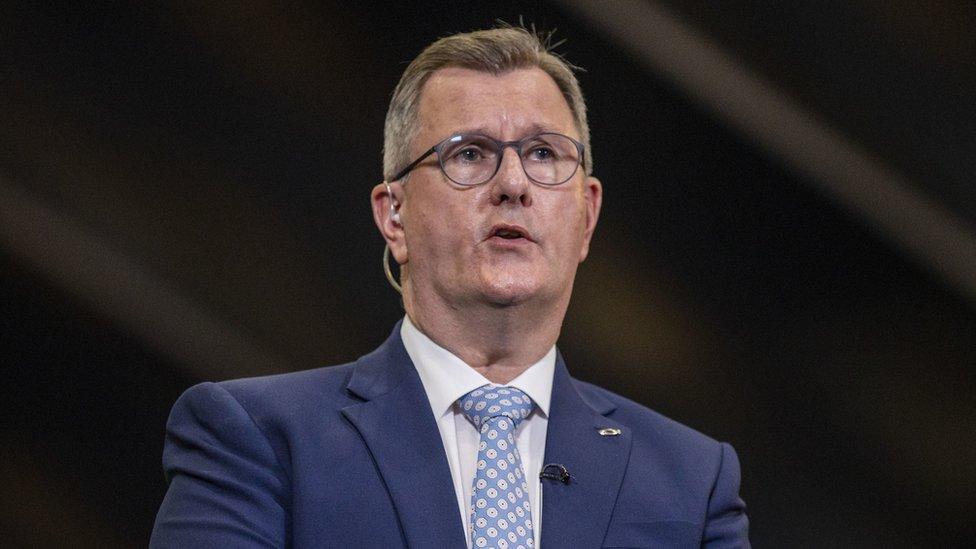
- Published2 February 2024
